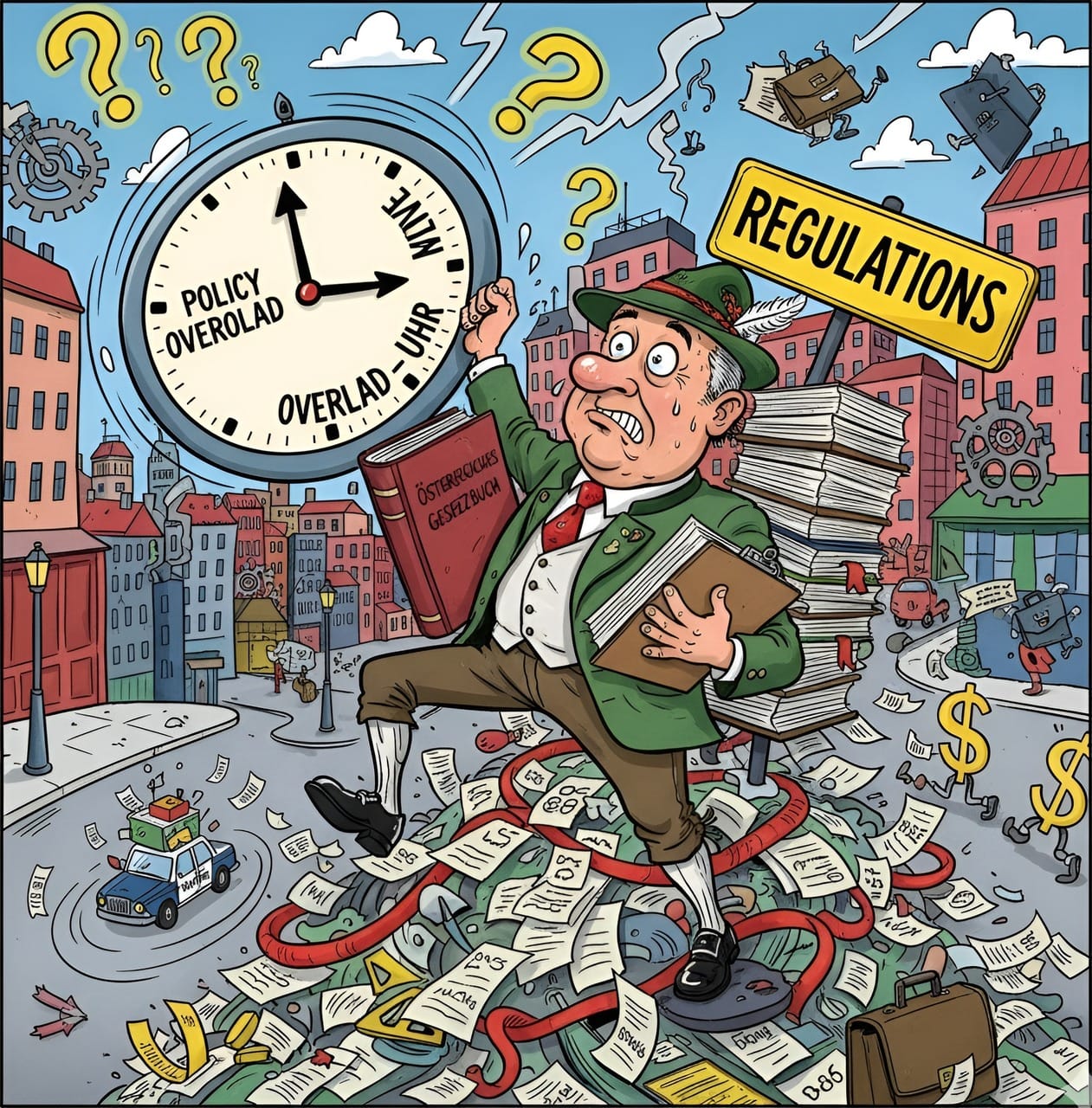Illegal Prostitution in Austria 2025: Underground Economy, Human Trafficking & Drug Links
Illegal prostitution in Austria is rising, linked to human trafficking, drugs, and the underground economy. Vienna police report alarming arrests, fines, and apartment closures in 2025.
AlpeAnony

Introduction
In early October 2025, Austrian media reported a shocking surge in illegal prostitution activities in Vienna, highlighting connections to human trafficking, drugs, and the underground economy. Police operations revealed a deeply entrenched network operating in private homes, exploiting vulnerable women, and bypassing legal regulations.
Vienna, Austria’s capital with over one million apartments, faces a growing challenge in policing these illegal operations. The rise of underground prostitution has sparked public debate on immigration policies, enforcement of residence permits, and the societal costs of criminal networks linked to sex work.
Police Crackdown on Illegal Prostitution in Vienna
A series of 68 targeted police operations against illegal prostitution took place in Vienna throughout 2025. Officials inspected approximately 200 private apartments, where women were offering sex services without the proper authorization. The findings were alarming:
- 570 penalties and fines were issued under Vienna’s prostitution law.
- Total fines amounted to approximately €190,000.
- 39 apartments were immediately closed and sealed due to violations.
- 10 women were arrested for illegal residence in Austria.
The trend reflects a shift from street-based prostitution to private homes, accelerated by the COVID-19 lockdowns. While this move protects sex workers from public scrutiny, it increases risks for both workers and clients, as private settings provide little protection against exploitation, violence, or coercion.
Public opinion is increasingly questioning the number of unreported apartments potentially used for illegal prostitution in Vienna. Experts warn that these hidden activities may represent only the tip of the iceberg of Austria’s underground sex economy.
Human Trafficking Networks and International Links
Beyond local operations, international criminal networks continue to exploit Austria’s sex industry. In September 2025, Europol announced arrests in Austria and Colombia linked to a human trafficking ring. Key details include:
- Victims: Mostly women from Colombia lured to Austria and other EU countries.
- Modus operandi: Fraudulent employment offers for jobs like nannies or masseuses.
- Coercion: Victims forced into prostitution through threats against themselves or their families.
- Online exploitation: Women advertised and controlled like merchandise on demand via websites.
These international networks expose Austria to global trafficking operations, highlighting vulnerabilities in immigration and employment verification systems. Traffickers exploit loopholes to move victims across borders under false pretenses, integrating criminal activity with the underground economy.
Hidden Costs of Illegal Prostitution
Illegal prostitution in Austria carries multiple societal costs, both visible and hidden:
- Health Risks: Increased exposure to sexually transmitted diseases among sex workers and clients.
- Drug Involvement: Some underground sex operations are tied to drug trafficking, creating overlapping criminal networks.
- Violence: Sex workers operating illegally have minimal protection, making them vulnerable to abuse by clients or handlers.
- Economic Fraud: Instances where illegal sex workers simultaneously collect state social assistance, defrauding public funds.
A striking example comes from Innsbruck, Tyrol, where a Czech woman allegedly worked illegally in prostitution for years while receiving minimum social support. The estimated financial damage ran into tens of thousands of euros, showcasing the intersection of illegal work and welfare fraud.
These hidden costs emphasize the need for comprehensive strategies targeting both criminal networks and systemic vulnerabilities.
Legal and Immigration Challenges
The Vienna operations raise questions about the effectiveness of Austrian immigration policies:
- Are non-EU workers being properly verified for residence permits?
- Are individuals entering Austria under legitimate work categories being exploited for illegal prostitution?
- How are authorities ensuring that permits issued for nursing or other professions are not misused?
Currently, non-EU citizens working illegally as sex workers face deportation if caught. This creates a paradox: victims remain trapped in illegal prostitution due to fear of arrest, while traffickers continue to profit from exploitation.
Authorities must balance law enforcement with victim protection, ensuring that the system punishes perpetrators without further victimizing exploited individuals.
The Underground Economy and Criminal Networks
Illegal prostitution is rarely isolated; it is intertwined with other criminal activities. Key aspects include:
- Drug Networks: Some sex operations fund or overlap with narcotics distribution.
- Money Laundering: Revenue from illegal sex work may be funneled into the black economy.
- Violence Financing: Criminal profits can be reinvested into activities aimed at destabilizing society.
Such operations highlight the need for a multi-pronged enforcement approach, targeting not only individual perpetrators but also the broader criminal ecosystem.
Proposed Reforms and Solutions
Experts and public opinion suggest several reforms to combat illegal prostitution and related crimes:
A. Hybrid Strategy for Authorities
- Integrate knowledge, analysis, and proactive development to identify hidden networks.
B. Strengthened Verification of Permits
- Conduct rigorous checks on residence and work permits for non-EU workers.
- Verify employment compliance, especially for professions prone to exploitation.
C. Enhanced Police Operations
- Continue and expand targeted inspections of private apartments.
- Close loopholes that allow underground operations to persist.
D. Collaboration with International Agencies
- Work closely with Europol and Interpol to dismantle cross-border trafficking networks.
- Share intelligence to prevent the movement of victims across EU countries.
E. Social Support and Victim Protection
- Establish programs to protect sex workers from coercion and exploitation.
- Provide legal pathways for victims to cooperate without fear of deportation.
These reforms aim to balance enforcement and protection, ensuring Austria’s legal framework is robust while safeguarding human rights.
Public Opinion and Social Responsibility
A growing debate surrounds how Austrian society perceives illegal prostitution and trafficking:
- Citizens are concerned about public safety, health, and moral implications.
- There is pressure on authorities to act decisively while avoiding stigmatization of immigrants or vulnerable women.
- Public awareness and cooperation are key to reporting illegal operations and supporting victims.
Experts emphasize that tackling illegal prostitution is not just a policing matter—it is a societal responsibility, requiring education, vigilance, and ethical discourse.
Conclusion
Illegal prostitution in Austria in 2025 presents a complex challenge involving underground economy, human trafficking, drugs, and social welfare fraud. The Vienna police crackdown revealed alarming statistics, but the hidden scale of the problem remains uncertain.
Key takeaways:
- Underground prostitution is growing in private apartments, posing risks to sex workers and clients.
- International trafficking rings exploit Austria’s labor and immigration system.
- Illegal prostitution contributes to crime, drug networks, and welfare fraud.
- Authorities must adopt hybrid strategies combining enforcement, verification, and victim protection.
Austria faces a critical moment: implementing reforms now can curb criminal networks, protect vulnerable individuals, and uphold the integrity of Austrian society.
